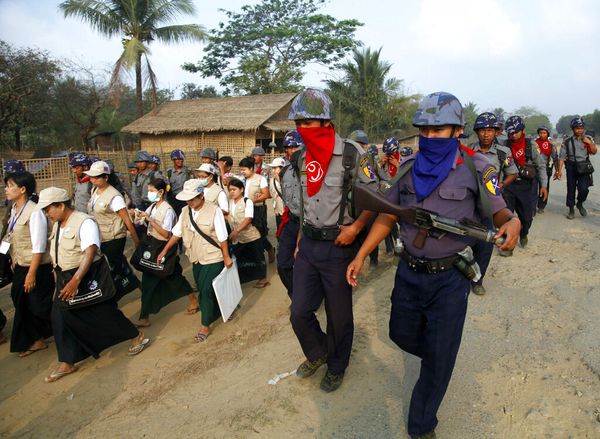
In a recent development, a high-ranking United States official has urged Papua New Guinea to reconsider a security agreement with China. The move comes as part of ongoing efforts by the United States to counter China's influence in the Pacific region.
In the last few years, China has been strengthening its ties with a number of Pacific Island nations, including Papua New Guinea. The security agreement in question involves the establishment of a Chinese-funded surveillance system in Papua New Guinea, which has raised concerns among some critics who view it as a potential threat to regional stability.
Speaking on behalf of the United States, the official emphasized the importance of maintaining strong security partnerships with countries in the Pacific. They expressed concerns over potential risks associated with the Chinese surveillance system, highlighting the potential implications for both regional security and privacy issues.
The United States has been actively increasing its engagement in the Pacific region, as part of its broader strategy to counter China's growing influence. The official further emphasized the need for Papua New Guinea to carefully consider the long-term implications of aligning closely with China, particularly in the realm of security.
Australia, another key player in the Pacific region, has also been closely monitoring China's activities. The Australian government has voiced similar concerns over Chinese presence in the region and its potential impact on regional security dynamics.
Papua New Guinea, a resource-rich country, has been a subject of increased attention from foreign powers due to its strategic location in the Asia-Pacific region. While China's interest in developing economic ties with Papua New Guinea is not uncommon, security agreements such as the one currently under scrutiny have raised eyebrows from countries like the United States and Australia.
In response to the concerns raised by the United States official, Papua New Guinea's government asserted its commitment to maintaining comprehensive and balanced relationships with all nations. They assured that the country's security decisions would be made with careful consideration and in accordance with its national interests.
It is important to note that Papua New Guinea has the right to pursue its own strategic engagements and partnerships based on its national interests. However, the concerns raised by the United States and Australia highlight the broader geopolitical dynamics at play in the Pacific region.
As the competition for influence between major powers intensifies, countries in the Pacific region like Papua New Guinea find themselves in a challenging position. Striking a balance between economic development and national security is vital, as they navigate the complex web of regional politics.
Ultimately, the decision on whether to proceed with the security agreement with China lies with Papua New Guinea. It will require a thorough evaluation of the potential risks and benefits associated with the deal, as well as consideration of its impact on existing relationships with other countries.
As the diplomatic maneuvering continues in the Asia-Pacific region, it remains to be seen how Papua New Guinea will respond to the growing pressure from the United States and Australia. Whatever decision is made, it will undoubtedly have far-reaching implications, not just for Papua New Guinea but also for the broader dynamics of power in the Pacific region.







